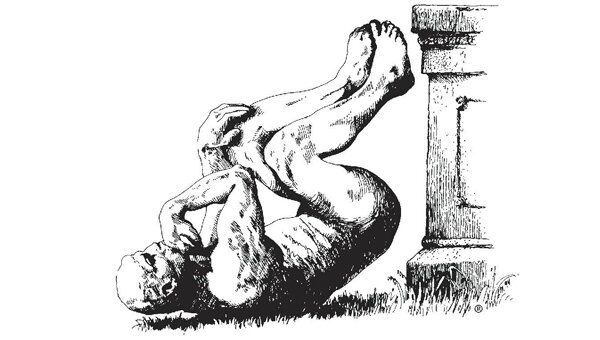Have you ever wondered why your coffee always seems to spill while you are walking with it? Or if there’s a contraption that will make talkative people shut up?
Those might not be the most pressing scientific questions facing mankind, but they are a perfect fit for the irreverent 2012 Ig Nobel Prizes handed out Thursday at Harvard University in the United States.
“We are honoring achievements that first make people laugh and then make them think,” said Marc Abrahams, the founder and master of ceremonies for the Ig Nobel Prizes. The ten awards were handed out by real Nobel laureates and the winners hailed from countries spanning five continents, including the United States, Russia and Japan.
Nine of the winners made the trek to Harvard’s campus in Massachusetts, at their own expense, to accept their prizes, including Igor Petrov, who traveled from Central Russia to attend the ceremony.
Petrov, an electrical engineer by trade, is one of three Russian 2012 Ig Nobel recipients.
“I was always attracted to doing something creative,” Petrov said in an interview Thursday. His project won the Peace prize for converting old military explosives into Nano diamonds that can later be used as light beacons for cancer treatments like chemotherapy.
Petrov said he’s been working on the project for 20 years and never expected it to become such a success.
Another Russian taking home a 2012 Ig Nobel prize was Rouslan Krechetnikov, a Mechanical Engineering professor at the University of California, Santa Barbara, who earned a Ph.D. in Applied Mathematics from the Moscow Institute of Physics and Technology.
Krechetnikov and his student Hans Mayer from the U.S. took home the Fluid Dynamics Prize for their research on the dynamics of liquid-sloshing, to learn what happens when a person walks while carrying a cup of coffee.
“While it was obvious to us that the coffee sloshing in a cup should be excited by walking, we could not anticipate that we could quantify coffee spilling,” Krechetnikov said.
Other Ig Nobel winners:
Kazutaka Kurihara and Koji Tsukada of Japan who won the Acoustics prize for creating the SpeechJammer, a machine that disrupts a person's speech, by making them hear their own spoken words at a very slight delay.
The Anatomy Prize went to Frans de Waal of The Netherlands and Jennifer Pokorny of the U.S. for discovering that chimpanzees can identify other chimpanzees individually from seeing photographs of their rear ends.
Emmanuel Ben-Soussan and Michel Antonietti, both of France, took home the Medicine Prize for advising doctors who perform colonoscopies how to minimize the chance that their patients will explode.
A group of researchers from the U.S and the U.K teamed up to win the Physics Prize. Joseph Keller, Raymond Goldstein, Patrick Warren, and Robin Ball calculated the balance of forces that shape and move the hair in a human ponytail.
Anita Eerland, Rolf Zwaan and Tulio Guadalupe from The Netherlands won the Psychology Prize for their study "Leaning to the Left Makes the Eiffel Tower Seem Smaller.”
The Neuroscience Prize went to a group from the U.S. Craig Bennett, Abigail Baird, Michael Miller and George Wolford demonstrated that brain researchers, by using complicated instruments and simple statistics, can see meaningful brain activity anywhere, even in a dead salmon.
Johan Pettersson of Sweden won the Chemistry Prize for solving the puzzle of why, in certain houses in the town of Anderslöv, Sweden, people's hair turned green.
And the literature prize was awarded to the U.S Government General Accountability Office, for issuing a report about reports about reports that recommends the preparation of a report about the report about reports about reports.




